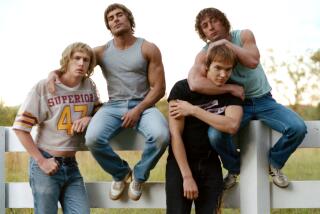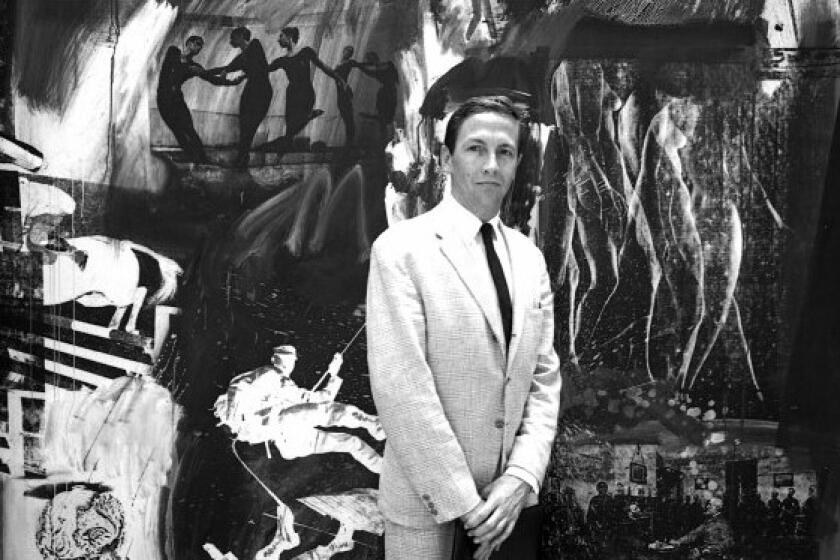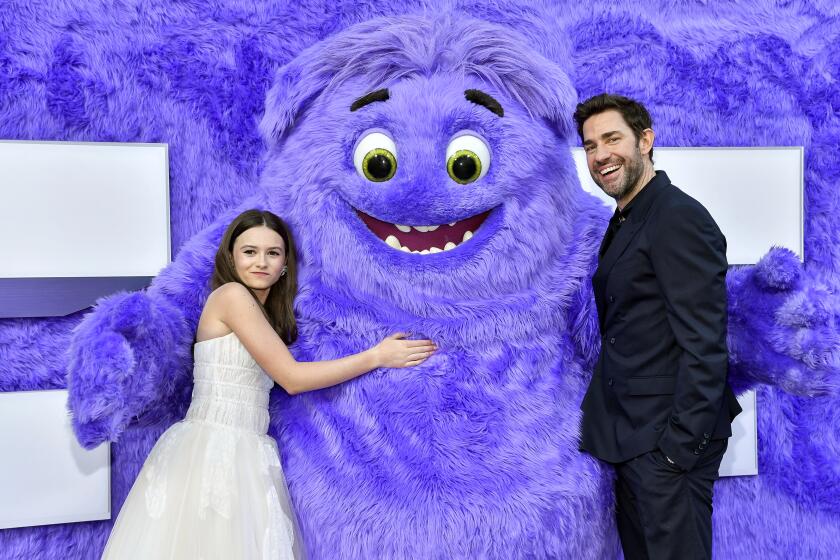Casting of Romantic Male Roles Shows Lack of Cultural Respect
NBC’s recent miniseries “The Lost Empire” provides a touchstone for looking at ways that anti-Asian sentiments are practiced. I say “sentiments” because at this point I am somewhat reluctant to label the movie “racist,” at least until a fuller definition of the term is operative.
Typically, we might think of racism as discriminatory exclusion or discriminatory selection that is institutionally enforced: people of color not matriculating into higher education at proportionate rates to whites, not being promoted to upper-level management, racial profiling, etc. “The Lost Empire” turned this “history of exclusion” on its head, but in a way that is no less offensive to many Asians.
The production accomplished this by injecting a white, male romantic lead into a Chinese myth where none before existed.
What’s particularly disturbing about “The Lost Empire” is that the inclusion of the white man was mandated to screenwriter David Henry Hwang. Further, it was made clear that this character was to serve as the romantic interest of the female Asian lead.
In a story in The Times (“Ancient Mysteries,” by Susan King, March 11), director Peter MacDonald said that producer Robert Halmi “wanted the romance between Orton [the white male] and Kwan Ying [the Asian female] to be the most important element in the adventure.”
That’s a far cry from an ancient Chinese myth where whites weren’t even present. Indeed, can you imagine the reaction if Asian filmmakers decided to tell the American myth of Paul Bunyan with an Asian actor as the lead?
Trying to pin down motivation for the inclusion of whites in ethnic films is an endeavor best left to another essay. For now, let us simply include “The Lost Empire” with other films in Hollywood’s history that have, for their own reasons, placed white males in lead roles in otherwise Asian stories. Films that come to mind are “Come See the Paradise” (1990), which placed a white, romantic male lead squarely in the story of the Japanese American internment, and “Year of the Dragon” (1985), which placed a white, romantic male lead in New York’s Chinatown. A more recent example is “Snow Falling on Cedars” (1999), which also dealt with World War II internment. And then there’s the hit Broadway play “Miss Saigon.” In each case, the white male was the romantic lead to an Asian woman.
Perhaps most disturbing is that such white male inclusion comes, for the most part, unabated by any kind of repercussions from Asians. The fact that The Times can so blithely report on the demand for a white lead actor tells us that a major network such as NBC either has not considered the possible repercussions or doesn’t fear any from Asians. This after a nationwide protest of the major television networks in 1999 by a coalition that included blacks, Asians, Latinos and Native Americans for failing to include people of color in their new shows.
Asians and other groups underrepresented on television, such as racial minorities, gays, lesbians and the physically and mentally challenged, deserve the same level of respect as the mainstream. But they need to make their voices heard. And network and studio executives must listen.
The framework for improved relations is in place: Underrepresented groups have advocacy organizations that can be consulted, and the networks, as a result of the NAACP-led protests in 1999, have vice presidents for diversity. Now everyone involved must make two-way communication the norm.
One thing is clear: Unless meaningful, ongoing dialogue is established during the script development process, the door to more cultural insults such as “The Lost Empire” will remain open.
Jeff Park is the editor in chief for USAsians, formerly Asian American Artistry.com, a Web portal on Asians in performing and fine arts, politics and culture. He helped represent the Media Action Network for Asian Americans during the NAACP-led negotiations with the major television networks on diversity issues. He can be reached at jp1713@hotmail.com.
*
Counterpunch is a weekly feature designed to let readers respond to reviews or stories about entertainment and the arts. Please send proposals to: Counterpunch, Calendar, Los Angeles Times, 202 W. 1st St., Los Angeles, CA 90012. Or fax: (213) 237-7630. Or e-mail: Counterpunch@latimes.com. Important: Include full name, address and phone number. Please do not exceed 600 words. We appreciate all proposals and regret that we cannot respond to each.
More to Read
Only good movies
Get the Indie Focus newsletter, Mark Olsen's weekly guide to the world of cinema.
You may occasionally receive promotional content from the Los Angeles Times.






